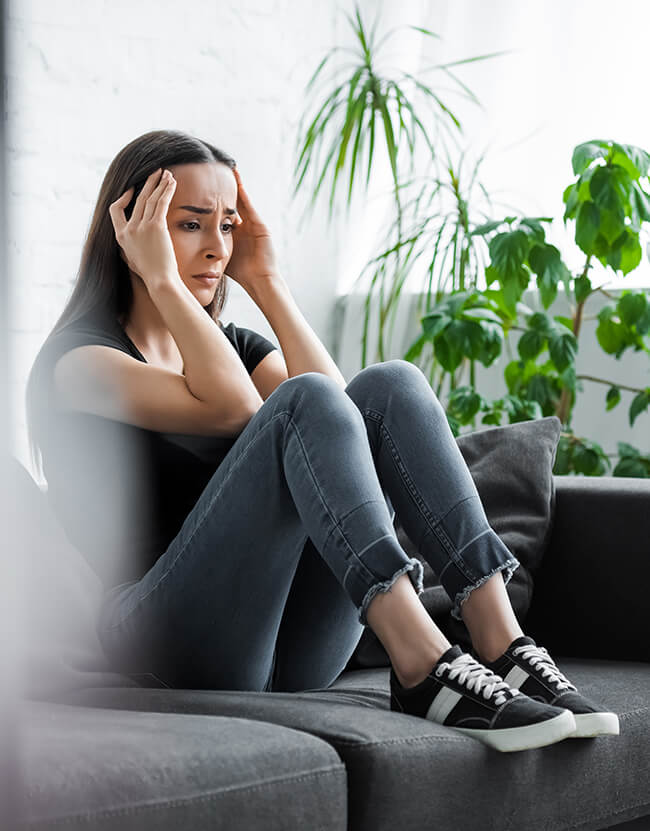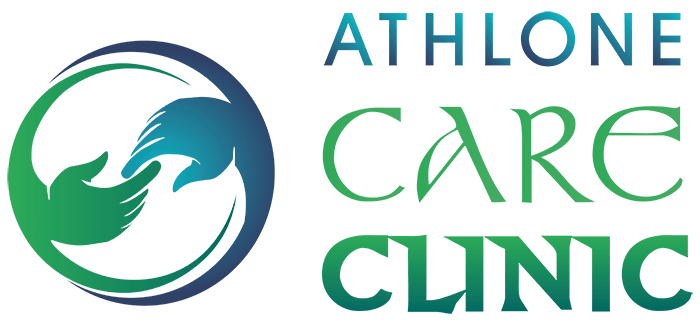Depression
Understand & Identify Depression and Its Affects
What IS Depression
Depression SYMPTOMS
HOW WE HELP
What is Depression
Depression is described as a mood disorder that causes persistent feelings of sadness, loss and fatigue. There are two types of depression: Major depressive disorder or clinical depression, and Reactive Depression.
Depression is described as a mood disorder that causes persistent feelings of sadness, loss and fatigue. There are two types of depression: Major depressive disorder or clinical depression, and, Reactive Depression.
Reactive Depression is much more common and occurs during bereavement, loss of relationships, financial pressure or otherwise have been caused by something not going well in your life.
Depression affects how you feel, think, and behave and can lead to a variety of emotional and physical problems. You may have trouble doing normal day-to-day activities, and sometimes you may feel as if life isn’t worth living or feel as though the life has been drained from your body. It is not just sadness or a bout of tiredness. One cannot simply “snap out of it” or “cheer up!” However, it is treatable, and many people do enjoy a full recovery. Research indicates that pairing medical intervention with psychotherapy is most effective in treating depression.

Causes of Depression
It’s not fully known exactly what causes depression. As with many mental disorders, a variety of factors may be involved, such as:
Biological Differences: People with depression appear to have physical changes in their brains. The significance of these changes is still uncertain but may eventually help pinpoint causes.
Brain Chemistry: Neurotransmitters are naturally occurring brain chemicals that likely play a role in depression. Recent research indicates that changes in the function and effect of these neurotransmitters and how they interact with neurocircuits involved in maintaining mood stability may play a significant role in depression and its treatment.
Hormones: Changes in the body’s balance of hormones may be involved in causing or triggering depression. Hormone changes can result with pregnancy and during the weeks or months after delivery (postpartum) and from thyroid problems, menopause or a number of other conditions.
Inherited Traits & Learned Behaviours: Depression is more common in people whose blood relatives also have this condition. Researchers are trying to find genes that may be involved in.

Symptoms of Depression
For many people with depression, symptoms usually are severe enough to cause noticeable problems in day-to-day activities, such as work, school, social activities, or relationships with others. Some people may feel very down or unhappy and have little or no idea why. Symptoms occur most of the day, nearly every day and may include the following:
Feelings of sadness, tearfulness, emptiness, or hopelessness
Angry outbursts, irritability or frustration, even over small matters
Loss of interest or pleasure in most or all normal activities, such as sex, hobbies, or sports
Sleep disturbances, including insomnia or sleeping too much
Tiredness and lack of energy, so even small tasks take extra effort
Reduced appetite and weight loss or increased cravings for food and weight gain
Anxiety, agitation, or restlessness
Slowed thinking, speaking or body movements
Feelings of worthlessness or guilt, fixating on past failures or self-blame
Trouble thinking, concentrating, making decisions, and remembering things
Frequent or recurrent thoughts of death, suicidal thoughts, suicide attempts or suicide
Unexplained physical problems, such as back pain or headaches
Feelings of sadness, tearfulness, emptiness, or hopelessness
Angry outbursts, irritability or frustration, even over small matters
Loss of interest or pleasure in most or all normal activities, such as sex, hobbies, or sports
Sleep disturbances, including insomnia or sleeping too much
Tiredness and lack of energy, so even small tasks take extra effort
Reduced appetite and weight loss or increased cravings for food and weight gain
Anxiety, agitation, or restlessness
Slowed thinking, speaking or body movements
Feelings of worthlessness or guilt, fixating on past failures or self-blame
Trouble thinking, concentrating, making decisions, and remembering things
Frequent or recurrent thoughts of death, suicidal thoughts, suicide attempts or suicide
Unexplained physical problems, such as back pain or headaches

Complications
Depression is a serious disorder that can take a terrible toll on you and your entire family circle. Depression often gets worse if it isn’t treated, resulting in emotional, behavioral and health problems that affect every area of your life. Examples of complications associated with depression include:
Excess weight or obesity, which can lead to heart disease and diabetes
Pain or physical illness
Alcohol or drug misuse
Anxiety, panic disorder or social phobia
Family conflicts, relationship difficulties, and work or school problems
Social isolation
Suicidal feelings, suicide attempts or suicide
Self-mutilation, such as cutting
Premature death from medical conditions
Prevention
There’s no sure way to prevent depression. However, these strategies may help.
Take steps to control stress, to increase your resilience and boost your self-esteem.
Get treatment at the earliest sign of a problem to help prevent depression from worsening.
Reach out to family and friends, especially in times of crisis, to help you weather rough spells.
Consider getting long-term maintenance treatment to help prevent a relapse of symptoms.


Seeking Help
When to see a Doctor
If you feel depressed, make an appointment to see your doctor or mental health professional as soon as you can. If you’re reluctant to seek treatment, talk to a friend or loved one, any health care professional, a faith leader, or someone else you trust.
When to get Emergency Help
If you think you may hurt yourself or attempt suicide, call 999 or your local emergency number immediately. Also consider these options if you’re having suicidal thoughts:
Call your doctor or mental health professional.
Reach out to a close friend or loved one and tell them how you are feeling.
If you have a loved one who is in danger of suicide or has made a suicide attempt, make sure someone stays with that person. Call 999 or your local emergency number immediately. Or, if you think you can do so safely, take the person to the nearest hospital emergency room. Never be on your own or keep these concerns a secrete. Always elicit the support of others.
Depression Symptoms in
Children & Teens
Common signs and symptoms of depression in children and teenagers are similar to those of adults, but there can be some differences.
In younger children, symptoms of depression may include sadness, irritability, clinginess, worry, aches and pains, refusing to go to school, or being underweight. Sometimes young children describe having headaches but if pain medication isn’t curing it, it may be time to schedule an appointment with your G.P
In teens, symptoms may include sadness, irritability, feeling negative and worthless, anger, poor performance or poor attendance at school, feeling misunderstood and extremely sensitive, abusing recreational drugs or alcohol, eating or sleeping too much or too little, self-harm, loss of interest in normal activities, and avoidance of social interaction.
Depression Symptoms in Adults
Depression is not a normal part of growing older, and it should never be taken lightly. Unfortunately, depression often goes undiagnosed and untreated in older adults, and they may feel reluctant to seek help. Symptoms of depression may be different or less obvious in older adults, such as:
Memory difficulties or personality changes
Physical aches or pain
Fatigue, loss of appetite, sleep problems or loss of interest in sex — not caused by a medical condition or medication
Often wanting to stay at home, rather than going out to socialize or doing new things
Suicidal thinking or feelings, especially in older men
We Are Here To Help
The first thing we remind every client we work with is, we are here to help. We understand and empathise with your situation. More importantly, we can help you.
Sometime the hardest step in a journey is the very first one. Reaching out and speaking to someone can be daughnting. We promise you, it is easier than you might expect, and once you’ve done it, you will have taken key step forwards.
We want to make it as eaasy as possible to take the first step. That’s why there are a number of ways in which you can contact us which we have listed below.
Once you’ve contacted us what happens then? The frist step for all new clients is to arrange an inital conversation. Through this we can understand what you are looking for. The support you might need and would like. It is also a good chance to get to know each other, which is important as we want you to feel confident and comfortable talking with us. We can answer any questions you might have and if your happy to proceed arrange your first appointment.

Send An Email
You can email us on contact@athlonecareclinic.ie
Drop Us A Call
Please don’t hesitate to call our team on 0906 455 302
Our Online Form
Head over to our contact page & complete our online form
